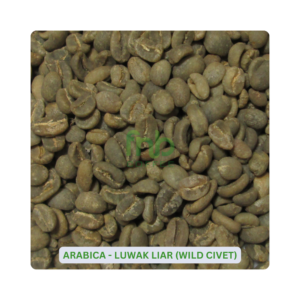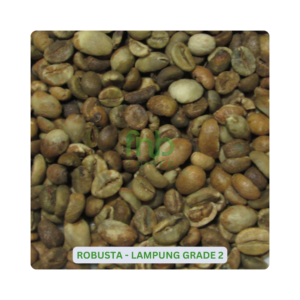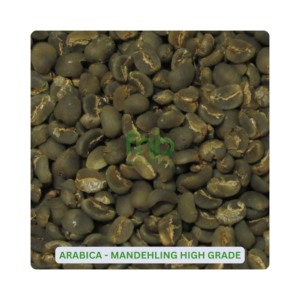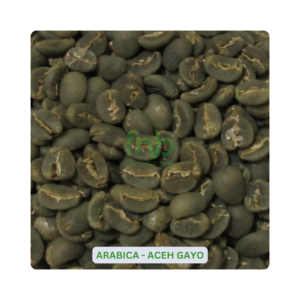

Natural Luwak Coffee, also known as civet coffee, is one of the rarest and most expensive coffees globally, prized for its distinct taste and unique production process. Originating from Indonesia, this coffee has become a sensation among enthusiasts worldwide.
Its flavor is shaped by a fascinating—and at times controversial—method that involves the digestive system of the Asian palm civet, a small mammal native to Southeast Asia. Despite its popularity, concerns about animal welfare and ethical issues in its production have sparked heated debates.
Daftar Isi
Beralih
Natural Luwak Coffee’s journey begins with the Asian palm civet consuming ripe coffee cherries. After ingestion, the cherries pass through the civet’s digestive system, where enzymes in its stomach break down the beans, altering their chemical composition. The beans are then excreted, collected, cleaned, and processed just like regular coffee beans.
This natural fermentation process is believed to reduce the bitterness and acidity of the beans, resulting in a coffee with a smoother, richer flavor profile. Depending on the region where the cherries are harvested, the flavor can vary—some describe it as chocolatey, earthy, or fruity.
The origins of Natural Luwak Coffee trace back to Indonesia during the 18th century, when local farmers discovered that civets were eating coffee cherries and excreting the beans. Initially, the farmers harvested these beans, cleaned them, and found that they brewed a coffee with a distinct flavor.
Over time, this coffee became highly valued, first among locals and then internationally, as the rare and labor-intensive process contributed to its exclusivity. Today, while Natural Luwak Coffee is still predominantly produced in Indonesia, its method has spread to other Southeast Asian countries, such as the Philippines and Vietnam.
Read also: Seperti Apa Rasa Kopi Luwak?
The most remarkable benefit of Natural Luwak Coffee is its flavor. The digestive fermentation process creates a smooth, rich taste, significantly reducing bitterness and acidity.
Many describe it as having chocolate, earthy, or fruity undertones, making it a standout choice for coffee lovers seeking something different.
Due to the labor-intensive production process, Natural Luwak Coffee remains one of the rarest and most expensive coffees in the world. This exclusivity offers coffee enthusiasts a unique experience, one that reflects the skill and tradition behind its creation.
Like other types of coffee, Natural Luwak Coffee contains antioxidants that can help reduce the risk of chronic diseases. Additionally, its lower acidity makes it a gentler option for individuals with sensitive stomachs.
Beyond its taste, Natural Luwak Coffee holds deep cultural significance in the regions where it is produced. It is seen as a symbol of tradition and local expertise, and drinking this coffee allows enthusiasts to experience a piece of Southeast Asian culture.
While praised for its flavor, the production of Natural Luwak Coffee has sparked significant ethical concerns. The main issue centers around the treatment of civets in captivity. In many cases, civets are confined in small cages and fed a diet primarily consisting of coffee cherries, which can lead to malnutrition and stress.
Critics argue that keeping civets in captivity for coffee production compromises their well-being. In the wild, civets have a varied diet and roam freely, but in captivity, they are subjected to unnatural living conditions.
The growing demand for Natural Luwak Coffee has raised concerns about the sustainability of production. Capturing wild civets for coffee production can threaten wild populations, and intensive farming practices can harm the environment.
In response to these concerns, there has been a push for transparency in the coffee industry. Some producers now market their coffee as “wild-sourced” or “ethically sourced” to indicate that the beans are collected without harming civets.
The goals of producing Natural Luwak Coffee include creating a high-quality product, addressing ethical concerns, and ensuring sustainability. Producers are working to maintain traditional methods while ensuring their practices are humane and environmentally friendly.
The primary goal remains producing high-quality coffee. This involves selecting the best coffee cherries, ensuring proper care for the civets (if used), and carefully processing the beans.
Some producers have shifted to ethical practices, such as using wild civets or providing captive civets with environments that mimic their natural habitats. These efforts aim to reduce the negative impacts of captivity.
Sustainable production practices are essential for the long-term viability of Natural Luwak Coffee. This includes avoiding deforestation, using organic farming methods, and protecting wild civet populations.
For many producers, maintaining the cultural heritage of Natural Luwak Coffee is a key goal. This includes preserving traditional methods and sharing the coffee’s cultural significance with the global market.
Despite the controversies, Natural Luwak Coffee offers several key advantages that contribute to its global appeal:
As the coffee industry evolves, technological innovations are playing a critical role in making Natural Luwak Coffee more sustainable:
The future of Natural Luwak Coffee will be shaped by growing consumer demand for ethical products, technological advancements, and global awareness. Consumers are likely to continue seeking ethically sourced options, pressuring producers to adopt more humane practices.
Natural Luwak Coffee’s distinct production process and flavor make it a prized commodity, but its ethical and environmental challenges require careful consideration. By embracing ethical and sustainable practices, both producers and consumers can help ensure the future of Luwak Coffee remains both enjoyable and responsible.
Tertarik untuk membeli Biji Kopi Hijau Indonesia? Hubungi kami di WhatsApp kapan saja di +62 811 6171 777 atau email info@fnb.coffee





Unduh dalam file PDF

Unduh Flyer Kami

Daftar Harga

Pertanyaan yang Sering Diajukan

Membuat Rancangan Kontrak

Mendaftar sebagai Distributor
FnB Coffee Indonesia mengkhususkan diri dalam memasok biji kopi hijau Indonesia secara grosir. Kami fokus pada distribusi grosir dan curah bisnis-ke-bisnis, memastikan bahwa klien kami di seluruh dunia hanya menerima biji kopi Indonesia terbaik.
© 2025 Hak Cipta FnB Coffee Indonesia, Hak cipta dilindungi undang-undang.
Kantor Jakarta
Gedung Menara Sentraya, lantai 39, Jl. Iskandarsyah Raya No. 1A Kel. Melawai, Kec. Kebayoran Baru, Jakarta Selatan 12160.
Gudang
Jl Medan - Binjai. Mulyorejo
Kec. Sunggal, Kabupaten Deli Serdang
Sumatera Utara. 20351
Perkebunan
Boangmanalu Salak
Kec. Salak, Kabupaten Pakpak Bharat
Sumatera Utara. 22272
Rencana Pengolahan Kopi Spesialti
Desa Pondok Balik
Kec. Ketol, Kabupaten Aceh Tengah,
Aceh. 24566
Hubungi Kami di
+62 811 6171 777
info@fnb.coffee